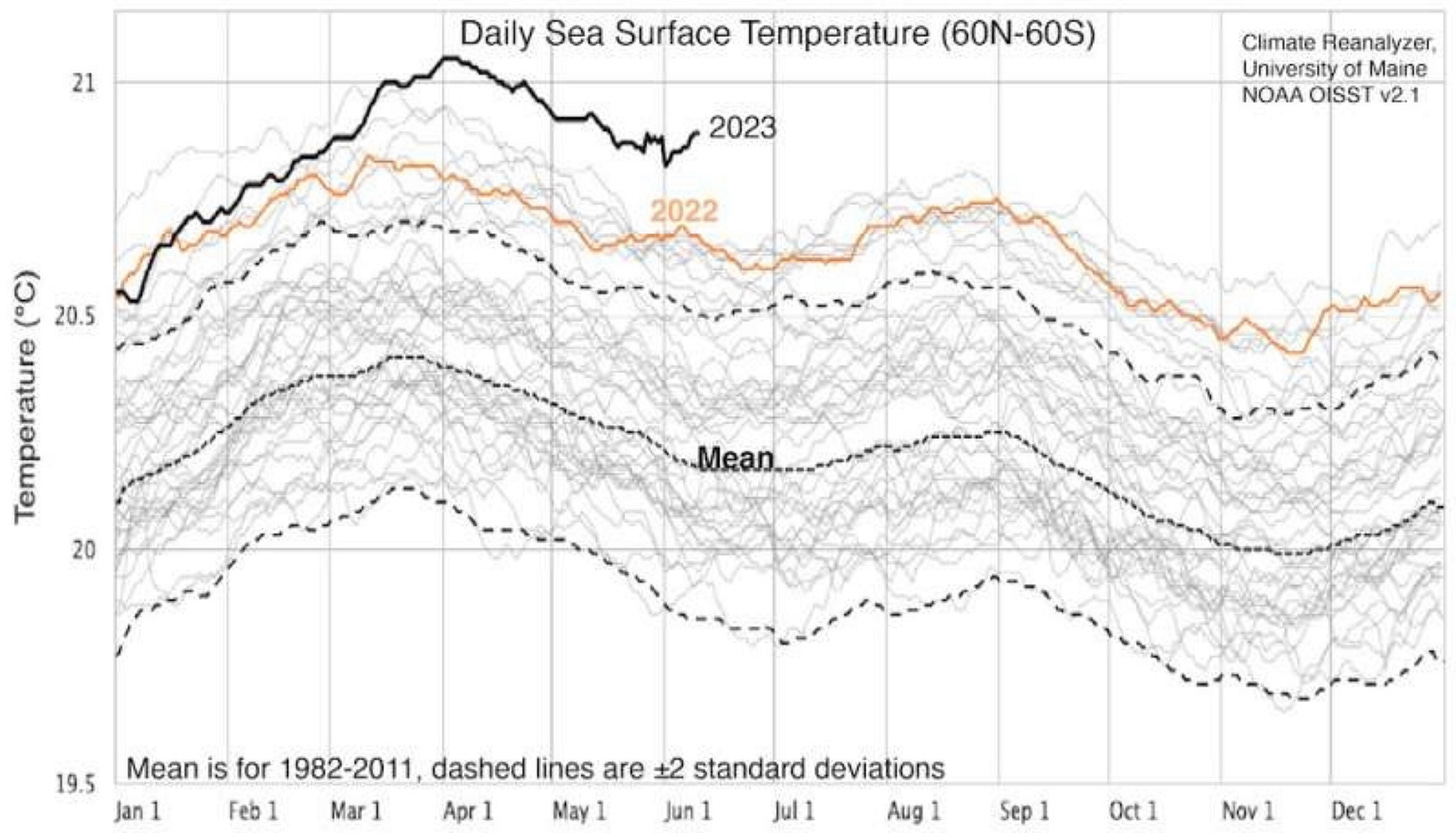Ocean warming signals alarm
Scary ...
One of the scariest plots I’ve ever seen was just published in a substack post by Bill McKibben. Here it is.
It shows that the capacity of the world’s oceans to preferentially absorb heat and so mitigate atmospheric warming may be near its end. Throughout 2022, the global ocean temperature exceeded its mean value over the thirty-year period from 1982 to 2011 by more than two standard deviations (meaning only a 5 percent probability of it happening by chance). Then, in January this year it started to rise even more rapidly, and since April this year, global ocean surface temperatures have exceeded that mean by four standard deviations (meaning less than a 0.01 percent probability of it happening by chance in any of those months month.
Some of the recent increase is no-doubt due to the transition from the La Niña phase to the El Niño phase of the ENSO oscillation. If you look carefully at the jumble of lines from previous years, you can see that even more rapid changes have occurred before.
But the persistently high deviation now means that what we’re seeing is definitely not just a ‘natural’ fluctuation. We’re into uncharted territory, and the ocean surface temperature rise already exceeds the aspirational 1.5 degree target (since the start of the industrial revolution) for air temperatures set by the Paris accord. Ocean temperatures have increased by more than that just in the last 25 years. And it’s (rapidly) continuing to head in the wrong direction. The heat capacity of the oceans is so much larger than that of the atmosphere that it’s just a matter of time before air temperatures show the same sort of deviations.
The data are compiled by NOAA, whose website shows that waters off the New Zealand coast are anomalously warm at present - by up to about three degrees Celsius. But some of the largest increases are off the Pacific west coast of South America - the unmistakable signature of a developing El Niño.
By the way, my colleague Ben Liley made some interesting observations about my “Deep Heat” post. I’ve included them there as end-comments.



That's a pretty clear signal